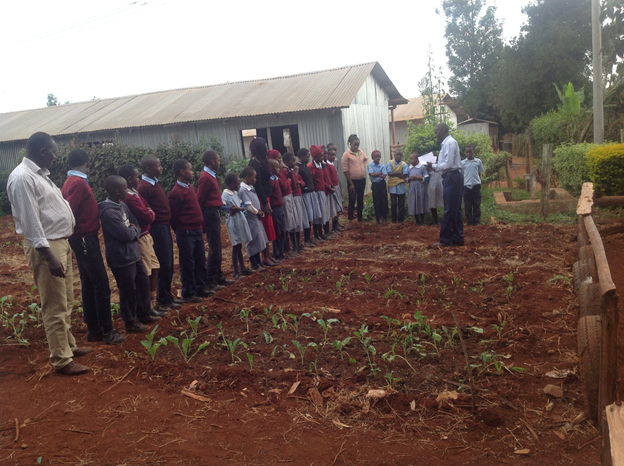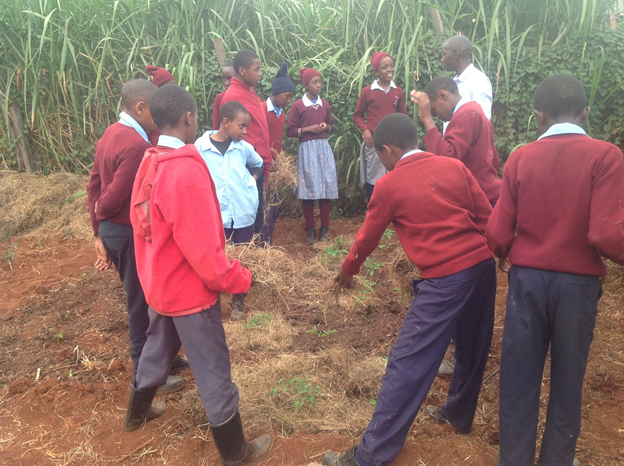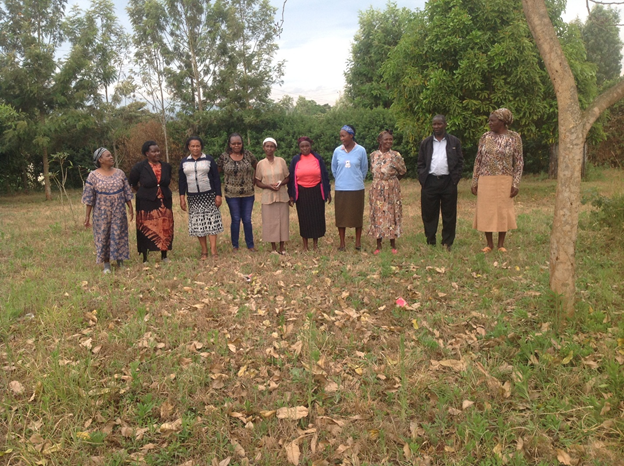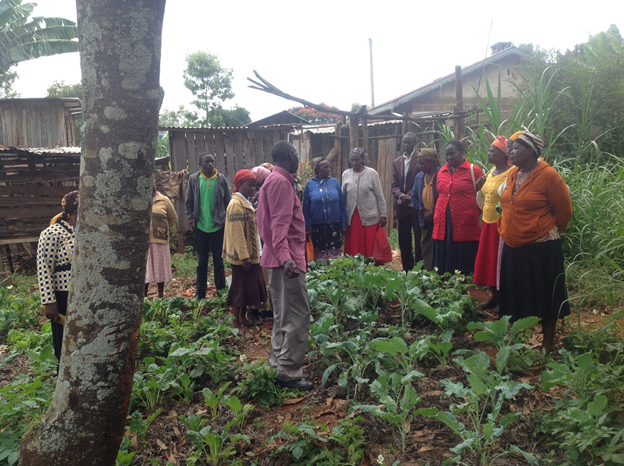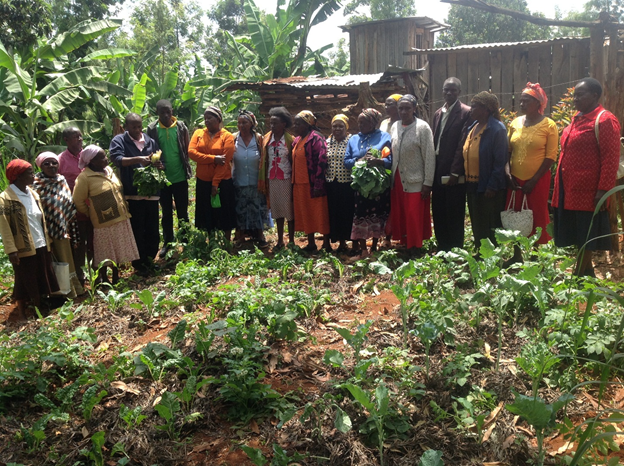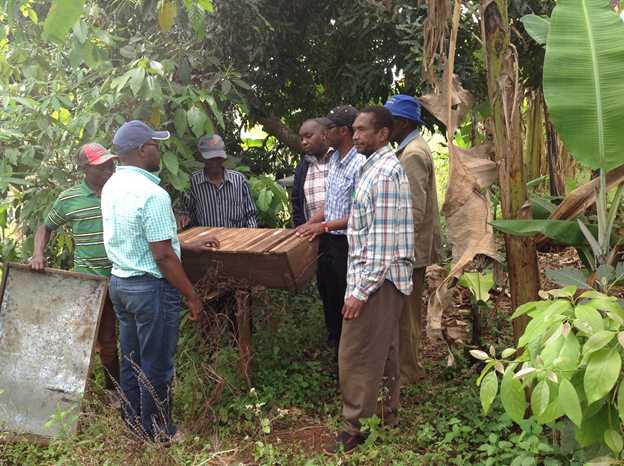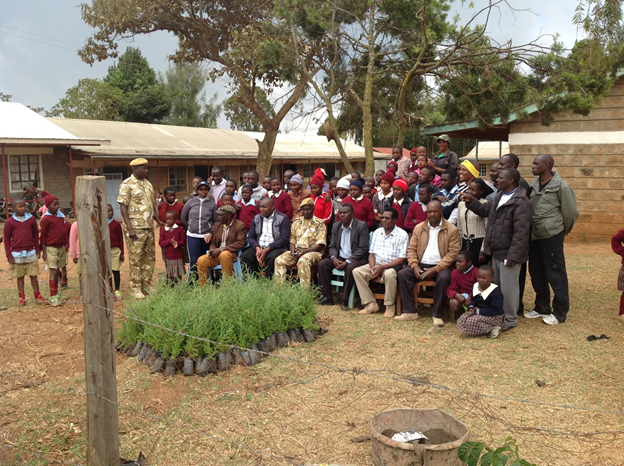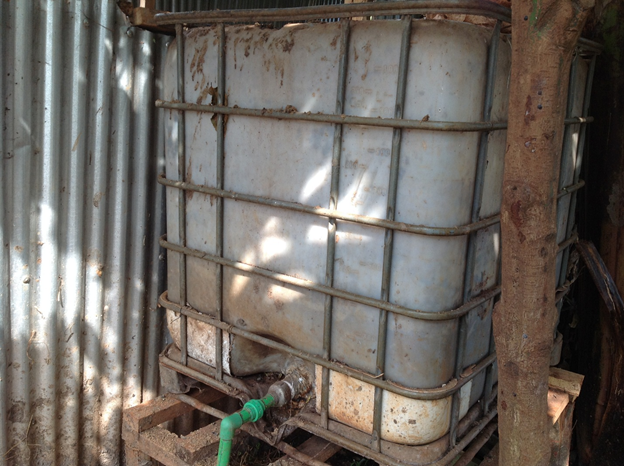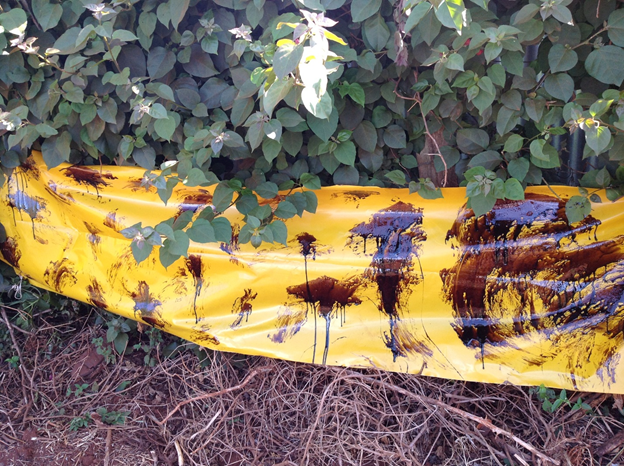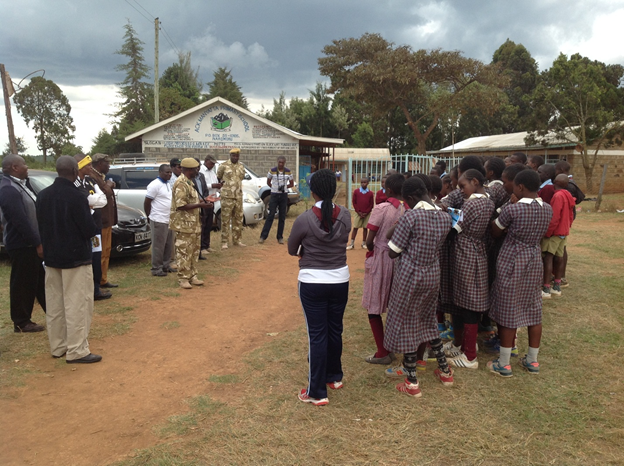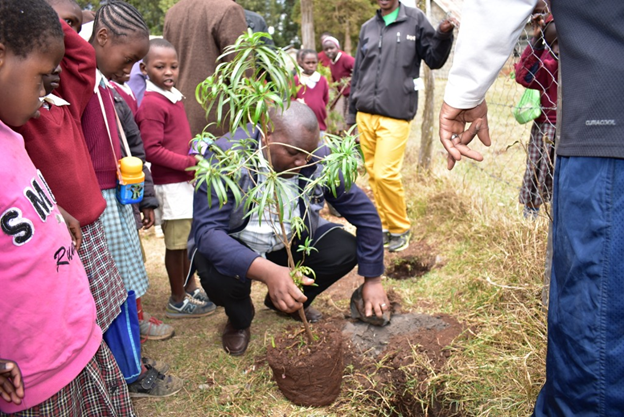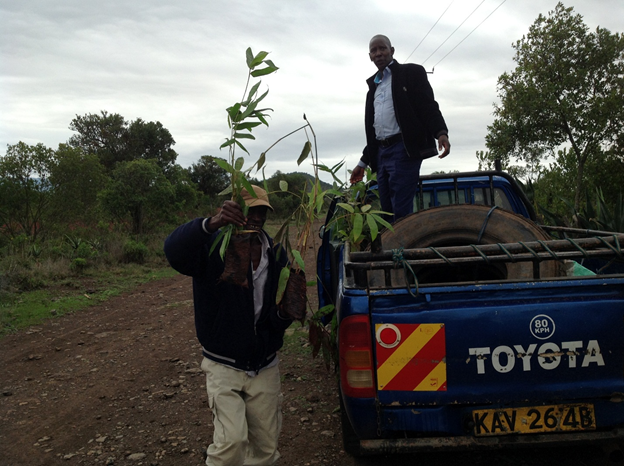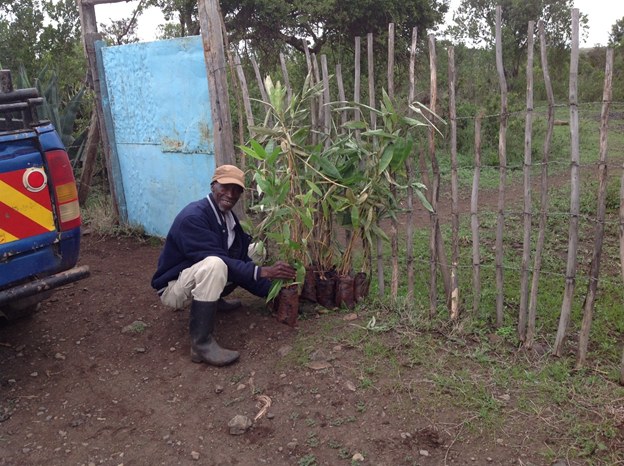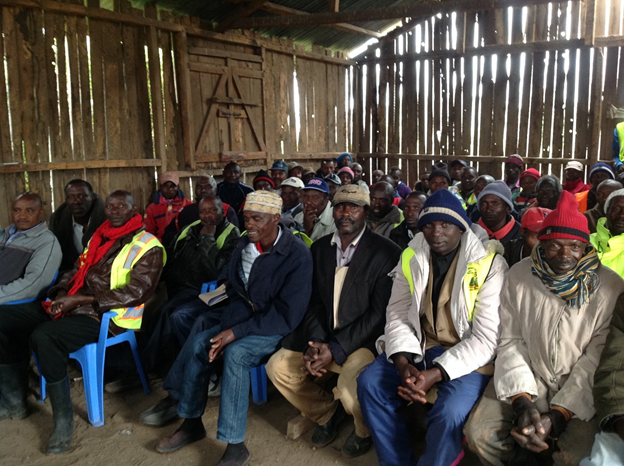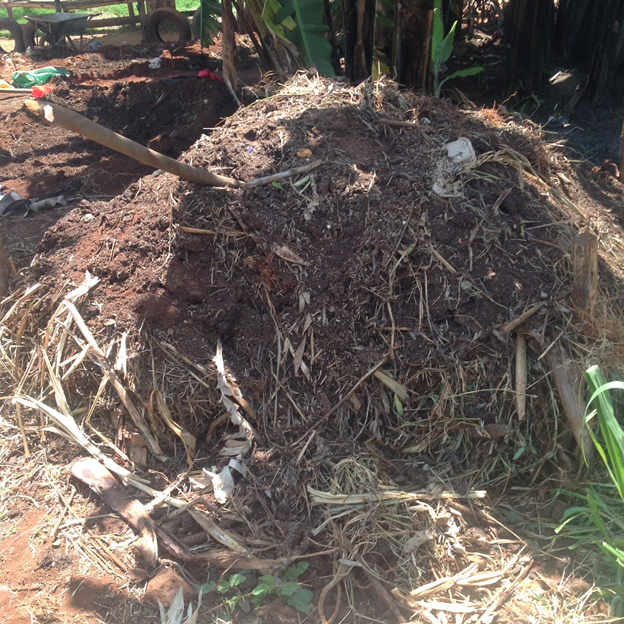Page Information
Hi everyone, 2018 has been a great year as we have been able to make strides through Rare. After the training at Manor House on C4C which was held between 11th-23rd March 2018, Kiini Sustainable Initiative has walked the journey with Courage and determination to have a solution towards Conservation through Organic agriculture campaign. Kiini was lucky to secure Rare 1st phase grant to carry a survey focusing on a number of objectives as indicated below:-
i. Determine whether participatory trainings and demonstrations on organic agriculture do take place in Nyeri, Kirinyaga, Laikipia counties.
ii. Identify the existing organic agricultural practices among small-scale farmers.
iii. Determine level of knowledge on how to access and use organic products for food production.
The survey covered three counties namely Nyeri, Kirinyaga and Laikipia with specific focus in Mugunda, Kabare and Ngobit wards respectively. The target population was between 21-69 years of age.
The findings revealed the following:-
i. Majority of the target audience are between the ages of 28-55 and are mainly small-scale farmers.
ii. Majority of them grows maize, beans, onions and potatoes as a source of livelihood.
iii. Very few farmers grow orphaned crops like cassava and arrowroots.
iv. Majority rears animals thus utilizing the farm yard manure and composts.
v. Very few of the target audience keeps beehives leading to loss of pollinators thus low food production.
vi. Few farmers know how to access open pollinated seeds as well as organic product.
vii. Majority of the target practice conventional farming as a way of food production.
2ND PHASE
Challenges
i. Some target audience were not comfortable sharing their birthdays.
ii. The farmers already understand the dangers of use of inorganic chemicals yet very few have embraced alternative ways of food production.
iii. Though farmers continue to grow maize and beans they always have food insecurity and eat poor diet which is not balanced.
iv. Limited resources to carry the survey effectively and train the enumerators on modern technology on survey.
v. High expectation by some farmers.
vi. Non response from the respondents on some questions especially on incomes, thought to be associated with fear for government taxation requirements.
PROJECT IMPLEMENTATION PHASE 2
ACHIEVEMENTS
i) Two demonstration sites established in Ngungu and Nyeri farm view whereby they will act as a model gardens
ii) 1500 seedlings of Giant Bamboo distributed and planted in the target areas especially along river banks and forests.
iii) 3 public forums held in Ngungu, Muthangira and Ngobit respectively where a population of 3,000 farmers have been reached directly.
iv) Held a tree planting exercise at Manyatta primary school with an intention to save Mt Kenya Glacier.
v) Two group of beekeepers formed that is in kiritine and Muthangira areas.
vi) We have been able to bring on board a number of partners that is the Kenya forest, Kefri and CCMI who are on forefront in conservation of forests who have supplied us with 1500 Giant bamboo seedlings
vii) An apiary has been set up at Ngungu area and ten beehives erected.
LESSON LEARNT
i) There is power in networking and building synergies.
ii) Small-scale farmers have solution to some of the challenges they face, they only need to change their attitude and embrace change.
iii) Pollinators play a key role and so farmers need to be encouraged to keep bees as well as reduce use of inorganic inputs so as to increase food production thus improved livelihoods.
iv) Alternative livelihood skills such as beekeeping, seed multiplication have to be imparted to farmers to ensure increase in production.
v) In order to reduce cases of tree logging the community forest action groups have to plant alternative trees in the forest such as Giant bamboo as well as working closely with forest conservationists to ensure the youths who are unemployed and who are involved in illegal tree logging, are allowed to set up apiaries and tree nurseries in the forests so as to generate income and see the value of trees.
WAY FORWARD
I) The negotiation are ongoing between Kiini and Central regional conservator of forests on how the community near the forest can be allowed to set up apiaries and tree nurseries as a conservation measure.
II) More demonstration sites to be established in strategic locations.
III) A one stop shop for bee products to be established to ensure the common interest group access the products. For that matter “adopt a hive save the nature” campaign will be launched soon.
IV) Murals will be drawn in strategic zones with a theme on campaigning for conservation
V) Local song on organic farming to be composed and released.
PHOTOS
Demonstration at Nyeri farm view academy
Demonstration on Mulching
Site selection at Kirathimo group
Organic production of kales
Miiri group
Beekeeping training session
Tree planting exercise at Manyatta
Water recycling at Nyeri farm view
Pest control Measure
KWS director addressing at Manyatta tree planting day to save MT Kenya Glacier
Mission to save MT Kenya Glacier
Giant Bamboo distribution
Farmer counting the number of Giant Bamboo
Public meeting at Ngobit market
Composting

